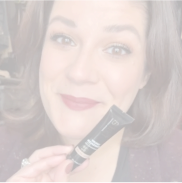It is perfectly fine to indulge in a wine and ice cream night every once in a while, but calling it “self-care” is misleading. Doing anything excessively in the name of self-care is just an excuse to do the things you know you shouldn’t while acting as though you deserve it. It is a vicious cycle. Doing these things in this way will not promote self-care, but rather, bad habits. It will cause you to bury the problem at hand, rather than solve it. In this article, we will talk about what self-care really means, and discuss some of our favorite ways to practice self-care.
Self-Care
By definition, self-care means “the practice of taking action to preserve or improve one’s own health” or “the practice of taking an active role in protecting one’s own well-being and happiness, in particular during periods of stress.” Self-care requires patience and the implementation of good habits. When you hear “self-care”, do you hear “retail therapy”? Do you hear “party time”? Do you decide to watch TV until late at night? Or snack on foods that make you feel worse later? These are all common examples of self-care that do not preserve or improve one’s own health. They do not protect your well-being or happiness. Take a look at your self-care habits and decide whether you are practicing negative self-care.
10 Positive Self-Care Practices
The good news? Positive self-care practices are simple. While they require more introspection, the more you try them, the easier they become.
- Journaling: You don’t need to write much, even two or three sentences will suffice. Just mention how you are feeling in that moment, or something that you are grateful for from that day. Keep it simple if you are intimidated by writing. You will be surprised how liberated you will feel after you have something down on paper.
- Meditation: There are plenty of apps that can guide you through a spoken meditation, which can be a great place to start as a beginner. Meditation is designed to help you observe your thoughts as they come and go, without judgment, until your mind feels at ease.
- Sleep: Without overcompensating in the other direction, getting a good night’s sleep is essential to your health and well-being. While staying up late can be tempting, make the choice to go to bed a bit early when you feel like your cup is running low.
- Less Phone Time: Social media can frequently add to negative self-talk and bad habits. Put your phone away when you do not need it and remove anyone from social media who is not serving your mental health. When choosing which brands to follow, curate your feed to only brands that promote positive perspectives.
- Setting Boundaries: Setting boundaries with friends, family, or co-workers can be scary. If you are concerned about how they will react, you can set boundaries in a less abrasive way. For example, distance yourself from those who bring you down or suck your energy out, and make room for people who lift you up.
- Personal Hygiene: Giving yourself a little spa day is lovely, but make sure to practice good personal hygiene every day. Shower, wash your face, moisturize, and take care of those teeth. For a good moisturizer, you can check out the Fièra Apple Stem Cell Cream. It is perfect for mature skin, as it helps with anti-aging using all-natural active ingredients.
- Exercise: Start with just walking around your neighborhood. Moving your body and getting fresh air can really uplift your spirits when you are feeling low and stressed.
- Eating Well: Rather than snacking on junk food, fill your body with healthy meals that will quench your hunger. Google the healthy version of your favorite snacks if you want something fun to pick at later without the added guilt of eating junk food.
- Accepting Help: You do not have to bear the weight of your stress alone. Ask for help if you need it, and accept help if it is offered. You are not a burden.
- Daily Affirmations: Being kind to yourself is self-care. Think of one nice thing to say to yourself every day. You will be surprised how the negative self-talk in your brain begins to dissipate.

